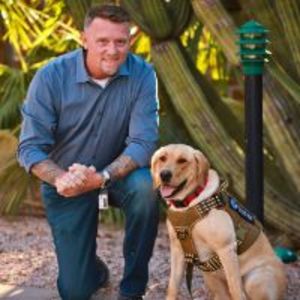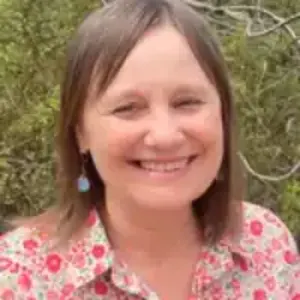






Cottonwood Tucson
This provider's information has been quality-checked by Recovery.com's Research Team for accuracy and completeness, including center verification through appropriate third-party organizations.
Treatment Focus
You can admit to this center with a primary substance use disorder or a primary mental health condition. You'll receive support each step of the way and individualized care catered to your unique situation and diagnosis.
Primary Level of Care
Offering intensive care with 24/7 monitoring, residential treatment is typically 30 days and can cover multiple levels of care. Length can range from 14 to 90 days typically.
Treatment Focus
You can admit to this center with a primary substance use disorder or a primary mental health condition. You'll receive support each step of the way and individualized care catered to your unique situation and diagnosis.
Primary Level of Care
Offering intensive care with 24/7 monitoring, residential treatment is typically 30 days and can cover multiple levels of care. Length can range from 14 to 90 days typically.
Provider's Policy
Cottonwood works with all major insurance programs and is in-network with Aetna, Beacon, Humana, Bright, and First Health. Submit your health insurance information for verification. All information is held confidential. We do not accept Medicaid or Medicare.
Cottonwood Tucson
Cottonwood Tucson
About Cottonwood Tucson
Recognized as one of Newsweek’s America’s Best Addiction Treatment Centers 2023, Cottonwood Tucson treats primary mental health, substance use, process addictions, and co-occurring disorders. They offer medically supervised detox, residential care, day treatment (partial hospitalization), and intensive outpatient. Their medically-managed detox provides a consultation with a medical provider, close nursing supervision, vital sign monitoring, and supervised medication use. After residential care, clients can participate in outpatient programming to continue building life skills and preventing relapse. Cottonwood Tucson treats only 9 clients at a time.
Mental Health and Addiction Treatment
On staff, Cottonwood Tucson has psychiatrists, psychologists, nurses, nutritionists, and substance use counselors catering treatment to clients’ recovery. They treat alcohol, opioid, and cocaine addiction, among others. Cottonwood Tucson is also a primary mental health provider, treating depression, bipolar disorder, post-traumatic stress disorder (PTSD), obsessive compulsive disorder (OCD), and eating disorders. Their program can help those with process addictions such as gambling, video games, shopping, and sex addiction.
Comprehensive Treatment Plans
Cottonwood Tucson uses a variety of therapies in their 1:1 and group sessions. Their program is 12-Step based, and clients participate in trauma-specific therapies such as eye movement desensitization and reprocessing (EMDR), somatic experiencing, and trauma release exercises (TRE). Cottonwood Tucson offers life skills training, where clients focus on relapse prevention, communication skills, relationship skills, anger management, and creating a strong support system. Clients who have chronic pain engage in alternative pain management methods like acupuncture, biofeedback, cryotherapy, myofascial release therapy, and nerve blocking. Cottonwood Tucson’s family program provides psychoeducation, communication training, multiple family groups, and 1:1 sessions. Their 5-day family week includes 8 hours of care daily.
Mind, Body, and Spirit
Cottonwood Tucson strives to heal the mind, body, and spirit, so they incorporate holistic healing methods into their treatment plans. Clients participate in yoga, meditation, massage, Reiki, mindfulness, tai chi, and passive muscle relaxation. Cottonwood additionally offers exercise routines, breathing techniques, and a whole-food diet. They have on-site equine therapy, walking trails, and a meditation garden.

Highlights from the Center
Highlights
These highlights are provided by and paid for by the center.
Customized Treatment Plans
Trauma-Informed Care
30+ Years in Business
Center Overview
Treatment Focus
You can admit to this center with a primary substance use disorder or a primary mental health condition. You'll receive support each step of the way and individualized care catered to your unique situation and diagnosis.
CARF Accredited
CARF stands for the Commission on Accreditation of Rehabilitation Facilities. It's an independent, non-profit organization that provides accreditation services for a variety of healthcare services. To be accredited means that the program meets their standards for quality, effectiveness, and person-centered care.

Insurance Accepted
Cash Pay Rates
Estimated Cash Pay Rate
Center pricing can vary based on program and length of stay. Contact the center for more information. Recovery.com strives for price transparency so you can make an informed decision.
Meet your care team

Stefanie Lockery
Director of Clinical Services
LCSW

Aaron Wilson
Chief Medical Officer
MD

Tab W. Hoyt
Chief of Medical Services / Nurse Practitioner
MSN, FNP-C

Maria Broz
Chief Nursing Officer
RN, BA

Thomas Mattimoe
Executive Chef

Amanda Martin
Psychiatric Mental Health Nurse Practitioner
PMHNP-BC

Emily Smith
Physician Assistant
PA-C

Damon Watts
Nurse Practitioner
NP

Bonnie Bordner
Trauma Therapist
LMSW

Meredith Cohen
Primary Therapist
LCSW

Cathy Craig
Yoga Instructor/Dietitian
RYT, RDN

George H. Daranyi
Specialty Counselor
J.D.

Jesse Everson
Veteran/First Responder Counselor
M.A.

Laura French
Primary Therapist
LMSW

Charles Gillispie
Certified Sexual Addiction Therapist
MFA, LISAC

Lilian Jacques
Specialty Counselor
MS, MA, LMSW, SEP

Annette Kohl
Acupuncturist

Marla Kuhn
Equine Director
LPC

Kevin Lanoue
Specialty Counselor
JD, OIX, CCST, LMT

Lisa MacDonald
Dietitian
MPH, RDN

Brooke Madden
Outpatient Therapist
MSW

Holly McCarter
Specialty Counselor
MS, LPC

Rev. Elwood J. McDowell
Specialty Counselor

James Morse
Primary Therapist
LAC

Thomas Nickerson
Residential Support Counselor & Patient Advocate
BSW

Randall Rutherford
Primary Therapist
BSW

Natalie Ivy Strickland
Yoga & Reiki Therapist
CYT-250

Tiffany Ragels
Primary Therapist
LMSW

Kristen Russell
Trauma Therapist

Sallie Tyrrell
Trauma Therapist
MS, LPC, LISAC, PSEP

Stephanie Speake
Trauma Therapist / EMDR / CST- L2
MS, NCC, LAC

Mayra Soto
Specialty Counselor
BA

Leslie Whitaker
Clinical Scheduler
BA

Shraddha Oropeza
Yoga Therapist, Specialty Counselor
MA, RYT 500




Levels of Care








Treatment
Specializations
Pornography Addiction
A person with a porn addiction is emotionally dependent on pornography to the point that it interferes with their daily life and relationships.
Alcohol
Using alcohol as a coping mechanism, or drinking excessively throughout the week, signals an alcohol use disorder.
Anxiety
Anxiety is a common mental health condition that can include excessive worry, panic attacks, physical tension, and increased blood pressure.
Bipolar
This mental health condition is characterized by extreme mood swings between depression, mania, and remission.
Depression
Symptoms of depression may include fatigue, a sense of numbness, and loss of interest in activities. This condition can range from mild to severe.
Veterans
Patients who completed active military duty receive specialized treatment focused on trauma, grief, loss, and finding a new work-life balance.
Sex Addiction
Compulsively seeking out sex can easily become a problem. This addiction is detrimental to relationships, physical health, and self-esteem.
Trauma
Some traumatic events are so disturbing that they cause long-term mental health problems. Those ongoing issues can also be referred to as "trauma."
Who We Treat
Men and Women
Men and women attend treatment for addiction in a co-ed setting, going to therapy groups together to share experiences, struggles, and successes.
Mild Disabilities
Adults with mild physical or intellectual disabilities receive treatment catered to their specific needs in a safe and clinically supportive environment.
Approaches
Spiritual Emphasis
Spirituality connects patients to a higher power and helps strengthen their recovery, hope, and compliance with other treatment modalities.
Evidence-Based
A combination of scientifically rooted therapies and treatments make up evidence-based care, defined by their measured and proven results.
Holistic
A non-medicinal, wellness-focused approach that aims to align the mind, body, and spirit for deep and lasting healing.
Individual Treatment
Individual care meets the needs of each patient, using personalized treatment to provide them the most relevant care and greatest chance of success.
Twelve Step
Incorporating spirituality, community, and responsibility, 12-Step philosophies prioritize the guidance of a Higher Power and a continuation of 12-Step practices.
Therapies
Meditation & Mindfulness
A practiced state of mind that brings patients to the present. It allows them to become fully aware of themselves, their feelings, and the present moment.
Trauma-Specific Therapy
This form of talk therapy addresses any childhood trauma at the root of a patient's current diagnosis.
Adventure Therapy
This experiential approach uses the physical and emotional challenges of outdoor activities as tools for personal growth.
Attachment-Based Family Therapy
ABFT is a trauma-focused therapy that teaches you to form healthy relationships by rebuilding trust and healing attachment issues formed in childhood.
Animal Therapy
Animals can inspire trust and self-worth. In this experiential therapy, guided interactions are used to improve social skills and emotion regulation.
Art Therapy
Visual art invites patients to examine the emotions within their work, focusing on the process of creativity and its gentle therapeutic power.
Body Image Therapy
Therapists use cognitive behavior techniques to challenge how patients perceive their body and their worth, rewriting negative thoughts and attitudes.
Craniosacral Therapy
A practitioner uses light touch around the head, neck, and back to improve the flow of fluids in the central nervous system, relieving tension and pain.
Conditions We Treat
Pornography Addiction
A person with a porn addiction is emotionally dependent on pornography to the point that it interferes with their daily life and relationships.
Grief and Loss
Grief is a natural reaction to loss, but severe grief can interfere with your ability to function. You can get treatment for this condition.
Personality Disorders
Personality disorders destabilize the way a person thinks, feels, and behaves. If untreated, they can undermine relationships and lead to severe distress.
ADHD, ADD
ADHD is a common mental health condition caused by dopamine imbalance. Common symptoms include inattention, hyperactivitiy, and impulsivity.
Anger
Although anger itself isn't a disorder, it can get out of hand. If this feeling interferes with your relationships and daily functioning, treatment can help.
Anxiety
Anxiety is a common mental health condition that can include excessive worry, panic attacks, physical tension, and increased blood pressure.
Bipolar
This mental health condition is characterized by extreme mood swings between depression, mania, and remission.
Burnout
Burnout entails mental and physical exhaustion, and leads to a severe lack of fulfillment. This condition is often caused by overwork.
Codependency
Codependency is a pattern of emotional dependence and controlling behavior. It's most common among people with addicted loved ones.
Depression
Symptoms of depression may include fatigue, a sense of numbness, and loss of interest in activities. This condition can range from mild to severe.
Substances We Treat
Alcohol
Using alcohol as a coping mechanism, or drinking excessively throughout the week, signals an alcohol use disorder.
Benzodiazepines
Benzodiazepines are prescribed to treat anxiety and sleep issues. They are highly habit forming, and their abuse can cause mood changes and poor judgement.
Chronic Relapse
Consistent relapse occurs repeatedly, after partial recovery from addiction. This condition requires long-term treatment.
Co-Occurring Disorders
A person with multiple mental health diagnoses, such as addiction and depression, has co-occurring disorders also called dual diagnosis.
Cocaine
Cocaine is a stimulant with euphoric effects. Agitation, muscle ticks, psychosis, and heart issues are common symptoms of cocaine abuse.
Drug Addiction
Drug addiction is the excessive and repetitive use of substances, despite harmful consequences to a person's life, health, and relationships.
Ecstasy
Ecstasy is a stimulant that causes intense euphoria and heightened awareness. Abuse of this drug can trigger depression, insomnia, and memory problems.
Heroin
Heroin is a highly addictive and illegal opioid. It can cause insomnia, collapsed veins, heart issues, and additional mental health issues.
Psychedelics
Hallucinogenic drugs—like LSD—cause euphoria and increased sensory experiences. When abused, they can lead to depression and psychosis.
Languages
Aftercare
Experience
Personal Amenities
Amenities
Special Considerations
Gender-specific groups
Patients in gender-specific groups gain the opportunity to discuss challenges unique to their gender in a comfortable, safe setting conducive to healing.
LGBTQ group
Group therapy unites LGBTQ+ patients in a safe and culturally competent setting, encouraging peer support under the expert leadership of a therapist.
First Responders Program
Paramedics, police officers, firefighters, and others join in a specific First Responders program, usually focused on trauma, grief, and work-life balance.
Activities
Yoga
Yoga is both a physical and spiritual practice. It includes a flow of movement, breathing techniques, and meditation.
Off-Site Activities
Off-Site Amenities

What people are saying
We love hearing about your treatment experience
Help individuals and families seeking treatment by sharing your first-hand experience with this treatment provider. Review Guidelines.





